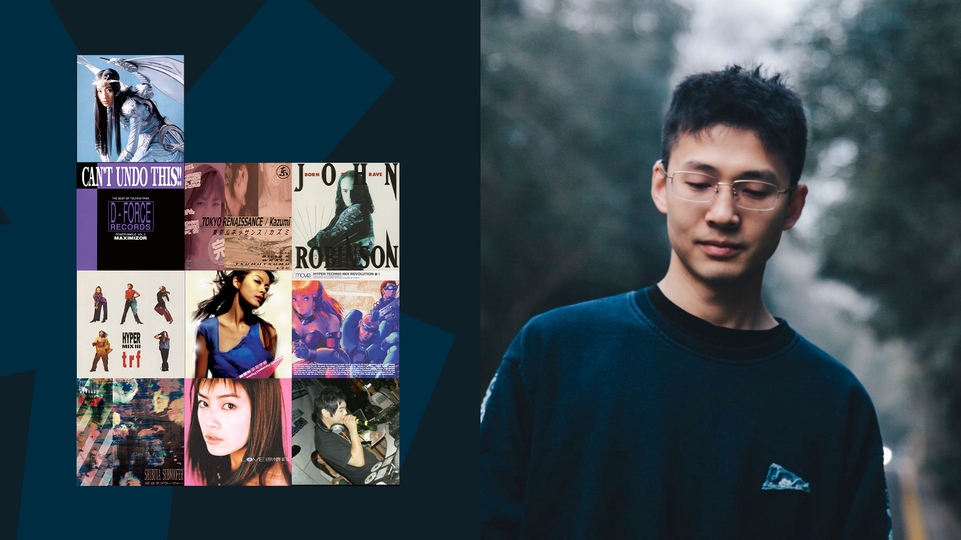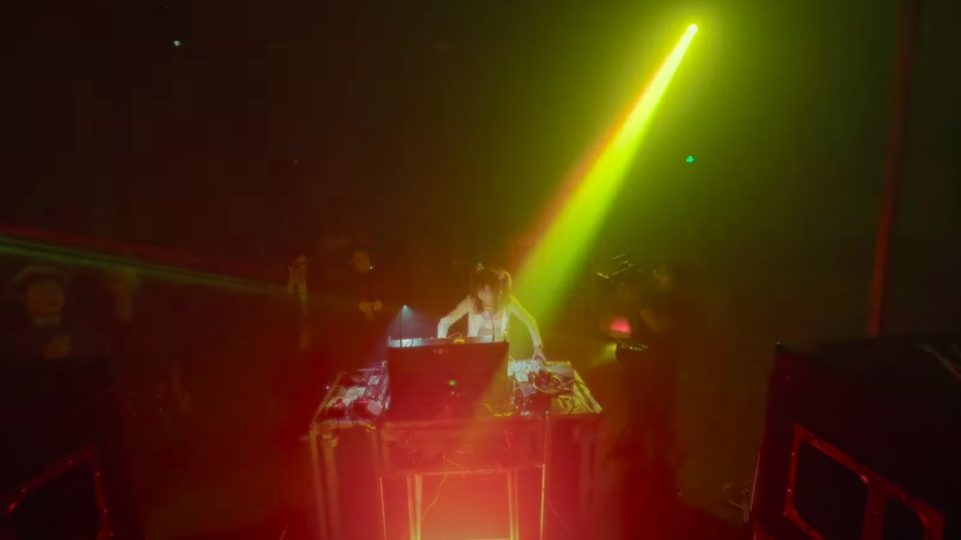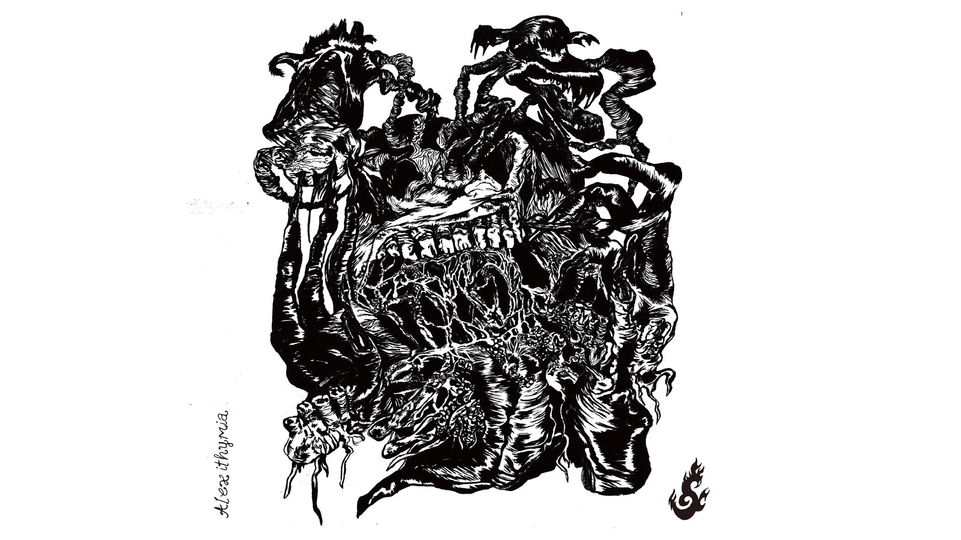
How China's club scenes adapted to return post lockdown
After intensive, early lockdowns, China's events industry is gradually returning to pre-pandemic levels, with safety measures in place. Bruce Tantum speaks to a selection of DJs and clubs to hear how the scene has returned, with homegrown talent in the spotlight
In mid-August of last year, scenes from an electronic music festival at a water-park in Wuhan, China were beaming across the internet. The photos and videos revealed a packed panorama, with thousands of unmasked revellers, some bobbing on floats and many more pumping their fists around a massive pool, while a DJ and a crew of dancers hyped the crowd from a raised stage. After months of lockdown and semi-isolation, with waves of COVID-19 surging through much of the world, the scene felt almost shocking in its pre-pandemic normalcy.
At that point, Wuhan had been largely free of officially reported outbreaks for months, and social gatherings like the waterpark party were already permitted by the authorities. As with the rest of China, the level of success that Wuhan had in beating back the pandemic had been achieved through means that perhaps would have been near-impossible in much of the world — mass testing, mandatory adherence to masking and social distancing, and not least, heavy-duty quarantines and extreme limitations on population movement. The approach seemed to have worked; by mid-March, the number of new cases, as reported by the government, was at a couple of dozen per day, down from thousands per day a few months earlier.
There were certainly still restrictions, but daily life in China was beginning to move towards something approaching normal. It wouldn’t be long before clubbing life would begin to trace the same trajectory. In recent years, mega-clubbing has become a massive pastime in China; a 2020 Billboard article reported that the dance-club industry grew fivefold from 2010 through to 2018, taking in an eye-popping £5.2billion.
It’s now fully embedded in the mainland’s youth culture, and even after the tragedy and devastation of a pandemic, the country’s appetite for electronic music wasn’t going to fade away. But bringing large-scale clubbing back to anything approaching what it had been wasn’t going to be easy — safely squeezing thousands of sweaty bodies into a confined space is a difficult chore under normal circumstances, and a worldwide health crisis of horrific proportions obviously complicated things. Prior to the pandemic, Chengdu’s Playhouse had been happily hosting the festival-friendly likes of Martin Garrix, Armin van Buuren and Afrojack. As the virus spread, the venue — a 7000-square-metre multi-room club situated in a converted theatre — shut down quickly, as did other Playhouse outposts in Xi’an, Guiyang and elsewhere.
“Around late January in 2020, before the public realised how the epidemic would go, we chose to suspend operations for the sake of every raver’s health and safety,” recalls Chen Chen, Playhouse’s brand director. “Our clients and staff all understood and supported this decision.” As it turned out, obviously, Playhouse made the right decision. “The epidemic went beyond our imagination,” Chen says.
Another clubbing group, Space Plus, operates clubs throughout China, with spots in Wuhan, Guangzhou, Nanjing and beyond — in recent years, its clubs have hosted names like Tiësto, Oliver Heldens and psytrance duo Infected Mushroom, amongst many others. As the scope of the pandemic was becoming clear, the mood was largely one of confusion, according to the group’s Magel He. “The situation was uncertain at best,” she recalls. “Everyone was on their phones reading the news and following the rapidly growing numbers, hoping that the thing will get under control soon.”


Despite that uncertainty, the clubs did their best to keep their community engaged following the shutdown. Playhouse, for instance, launched a series of online parties, and Space Plus did much the same. “After the initial shock of the situation, we organised a skeleton crew from the arts department to run a daily live-stream from our Shanghai club,” say He. “We hoped that this helped people stay at home, and at least for a few hours a day forget about the situation we were all in.”
HOMEGROWN
Mega-clubbing in China is a relatively recent phenomenon. That Billboard article narrows down the scene’s Day Zero to the 2015 opening of Chengdu’s 2,500-capacity Space, among the first of the kind of gargantuan, all-bells-and-whistles venues that can now be found in any large mainland city. In those early days, most of the DJs playing in spaces of that size were brought in from outside the country — rave culture and EDM was just beginning to exist in China, so there wasn’t exactly a huge pool of local spinners to choose from. But in recent years, China has begun to cultivate its own crop of big-room jocks, most of them playing more or less in the mode of their international heroes.
One of the most popular of those homegrown spinners is the Hong Kong-born, Shanghai-bred Giorgio Carta, known to his acolytes simply as Carta. One of his first exposures to electronic music was through Swedish House Mafia, and it shows — like them, Carta’s productions, many of them released on Dutch label Spinnin’ are crammed with euphoric energy. While the clubs were closed, he credits one thing for getting him through those days: “I meditated a lot,” he relates. “About 10 to 20 minutes in the morning, and 30 to 60 mins in the afternoon. I also picked up reading as well, lots of philosophical stuff as well as quantum physics and torsion science.”
Another player within China’s burgeoning big-club universe is Aryue, an EDM acolyte who, much like Carta, had been making inroads on the festival circuit beyond the mainland’s borders in recent years. Also like Carta, he’s released tunes on Spinnin’, along with labels like Armada and Smash The House. One of his most recent, a collaboration with the Australian producer Highup called ‘Party’, boasts a feature from Snoop Dogg. His interim activities didn’t involve anything quite as baffling as quantum physics, though — “A lot of time was spent in the studio,” he says, “making new music, arranging new performance sets, making new mashups, and discussing with the team.”
But as it turned out, their downtime, at least when it related to doing what they do best — banging out big tunes to big crowds in big clubs — was short-lived. By spring of 2020, with reported cases dropping, the superclubs’ reopening process had already begun to take shape. Some of the preparations made their way to the club’s social-media posts; videos of workers in white suits and intense-looking cleaning gizmos were among the earliest signs that plans were afoot. Prior to reopening, “We conducted nucleic acid tests [for COVID positivity] for our staff four times, along with environmental sampling tests of the venues,” Playhouse’s Chen says. “And we performed the highest level of cleaning and disinfections.”
Some clubs, mainly smaller venues in areas less affected by the pandemic, were already beginning to open in March 2020, but the first of Space Plus’ clubs to reopen was its Guangzhou outpost in early June. “Our reopening came cautiously and in stages,” the group’s He explains. “There were limits to the number of guests we could admit in order to avoid crowding. Masks and disinfectants were given to all customers, and the whole venue was disinfected multiple times a night.”
Beyond those precautions, the Chinese government had developed an app to keep tabs on the virus called Health Kit, required not just for clubbing but for a whole range of potentially super-spreading situations. “It’s a deceptively simple QR code-based app,” as He describes it. “The app tracks the general movement of individuals by saving their mobile phone signal location and remembering it for 30 days. In case you have travelled to or through a high-risk area, you will not be allowed to enter certain public spaces until the virus incubation period ends.”


That kind of system would likely never be accepted in much of the West, but there’s no denying its effectiveness — if it displays a green light, you’re admitted, but if it’s yellow or red, you’re sent home or even into quarantine. “But we haven’t had a single case connected to any of our venues,” she says.
No matter how stringent the precautions, the question is whether it’s enough to actually get bodies into the club. “Human beings are rational,” Chen says. “Under the circumstances, people will have some worries.” But any trepidation didn’t last long, according to He: “By the time we started reopening the situation was quite stable, and most cities were essentially virus-free. Soon after reopening hesitation gave way to eagerness, and people started coming.”
That eagerness was palpable. “The party animals went crazy,” Aryue says. The DJs have adjusted accordingly. Carta, for instance, had been experimenting with more intimate forms of dance music prior to the pandemic. “But I did make a path change, in the sense of leaving from house and going back to my big-room roots,” he says.
Aryue realises how strange this all must seem to those outside of China, in places where clubbers have largely had to satisfy their nightlife urges while sitting at home listening to live streams. “When I post photos and videos of the shows on overseas social media,” he says, “they all feel like it’s unbelievable.”
To an outsider, where full-on clubbing is still a distant light at the end of a long tunnel, this does all seem a bit surreal — but in China, in many respects, it’s clubbing business as usual. “We’ve been 100% open, at full capacity, since September 2020,” says a representative of Beijing’s popular One Third club, a 1,000-capacity multi-floor boîte that, until the pandemic struck, was bringing in such notables as R3HAB, Fedde Le Grand and Rezz.
RESTRICTIONS
On 19th May, China reported 14 cases, none locally transmitted; by way of comparison, the UK recorded over 2,100 new cases, and the States marked almost 29,000 positive test results on the same day. China’s intention, quite understandably, has been to keep the virus at bay — and to that end, the country has had tough international travel restrictions in place since the pandemic’s early days, beyond the stringent restrictions that the West had imposed. Early on, the country fully banned tourists and short-term business travellers — a group that would include DJs — from crossing its borders, and even those holding visas or residence permits had difficulty entering.


Those restrictions have eased up ever so slightly over time, but the country is still locked up relatively tightly. At the time of writing, entry from some countries is still banned almost entirely, while travellers from other nations have to quarantine for two weeks prior to visiting — and in any case, the odds of a DJ securing a visa are vanishingly small. Which means, needless to say, that the world’s jet-setting spinners and performers, normally the lifeblood of China’s mainstream clubbing trade, have been almost entirely absent.
For DJs based in China, this has meant new opportunities. That’s true of the underground realm — the experimentalists of Shanghai label SVBKVLT, for instance, are currently on a nationwide tour, and far-from-the-mainstream DJs like Zhiqi and Slowcook have had no shortage of gigs since reopening. But it’s the big-club types that have really seen their domestic schedules fill up. “It’s been a good opportunity for us to focus on the local talent, with more clubs willing to invite the local artists,” the One Third representative explains. “And the audience have had a very good response to that.” At the very least, it’s expanded the number of gigs available to play. “You see local acts, including myself, touring 30, 40 and 50 shows,” Carta says, “which was very rare to see in the past.”
The concept of big-room, DJ-led nightlife in China has arisen from practically nothing since the turn of the millennium; it has none of the history and little of the organic evolution that clubbing’s had in places like the UK, the States or Germany. But the kind of opportunities that Carta has been seeing may be the catalyst that allows China to begin to develop a clubland identity separate from the West’s. “It’s because of the epidemic that a group of excellent music producers and DJs have emerged in China, who can pass on the music culture with Chinese characteristics to everyone,” Carta shares.
But Space Plus’s He sees the situation a bit differently. “Yes, closed borders have definitely brought greater opportunities for local talent, as the market has great demand for performers,” she says. “However, this has also exposed the insufficient foundation of the local electronic music scene.”
CHINESE BOUNCE
The mainland hasn’t been totally musically isolated, of course — but still, a year without the Aokis and Guettas of the world has allowed for some interesting developments in the big clubs. Aryue cites the influx of Vinahouse, a fizzy Vietnamese derivative that borrows its hooks from the poppiest of pop — no nuance allowed. (“Not my favourite style of music,” he adds.) More hip-hop has arisen in the market as well, according to the One Third rep. And then there’s the rise of what’s generally known as Chinese bounce, or colloquially as Tuhai, characterised by perky melodies, a speedy rhythmic template and generally cheap-sounding production, as if made quickly on a toy-shop Casio. Like Vinahouse, it’s obviously geared towards a younger crowd, who seem to eat it up: “I feel like I am in real party dancing all night!” a typical YouTube comment reads. “For real, the sound and the beat is the best!” Not everyone agrees. “Popularisation here means ‘excessive commercialisation’,” Chen says. “But Playhouse selects artists and music more strictly and carefully.”


Carta, meanwhile, has had a bit of fun with the style; together with a pair of other major-name producers from China — Mixmash Records signee Unity and the Armada label’s Luminn — he’s formed a trio called Chinese Bounce Mafia as a reaction to the sound’s ascension. The moniker is more troll than tribute — at gigs, the threesome begin their sets by mocking the style, before veering off into the room-rattling sounds they’re known for.
“First of all, I want to clarify that I don’t dislike bounce,” Carta explains when asked about the genre. “But what I am against is poorly produced music in any genre, and that just happens to be bounce in China at this time. Some acts are just shoving very poorly produced bounce records down the throat of the crowd just for quick and easy cash. In reality, we should be the ones to educate, and not manipulate the whole situation for self-gain. In fact, I’m going to put out a couple of bounce records just to set the standards and show how it’s supposed to be done.”
There’s plenty of optimism about the ongoing development of the local DJ ecosystem — unsurprising, given that the big clubs have been cruising along quite well in recent months without the help of global superstars.
Carta extends that thought even further, beyond China’s borders. “I think it will not be the same as before for China, even if the borders are opened,” he says. “And personally, I think that every market worldwide, not just China, will also get a bit less international and slightly more localised. That’s good for the development of local heroes all over.”
But as travel restrictions slowly ease, you can expect the major international names to be flooding back in. The risk is that the rush of superstars will drown out the locals, but Aryue, for one, is ready to welcome the out-of-towners back. “I hope it can be like before the pandemic,” he says, “when more international artists can perform, and more international music festivals and conferences can be held. Just as with pop music, that can popularise the knowledge of electronic music to every Chinese listener. In this way, China’s electronic music will see a bright future.”
Space Plus’ He is of a similar opinion. “Clubs, festivals, promoters and ravers are all hoping to see international acts touring again,” she says. “International travel allows us to meet, understand, and share ideas with people from all around the world, and this ability to share and influence others has been at the core of electronic music since its inception. It’s the basis of the culture we have all grown to love.”
Chen Chen, speaking for Playhouse, feels that China’s isolation over the last year means that the country’s clubbing world has matured to the point where there’s plenty of room for both homegrown idols and jet-setting sensations. “People are definitely looking forward to the return of international artists,” Chen says. “After all, many top DJs have created a lot of classic, popular music, and the ravers’ craziness for music is very understandable. But at the same time, our domestic artists have been making achievements, and a lot of their music has been witnessed by the world. Whether it is the return of international DJs or the emergence of Chinese DJs and producers — in our opinion, that’s something that everyone is happy about and proud of. After all, music knows no borders.”





